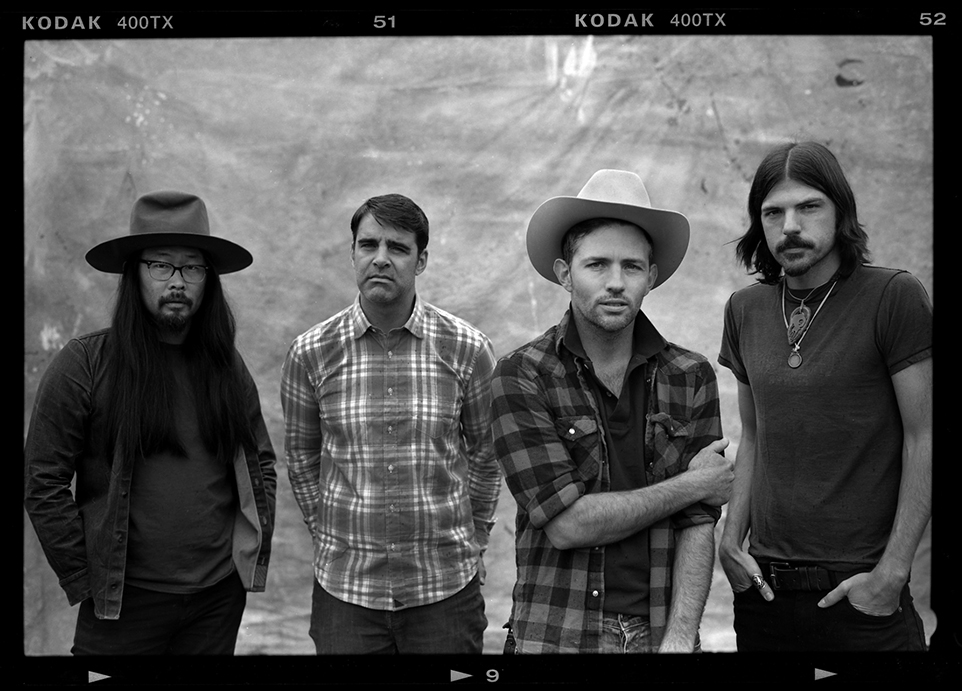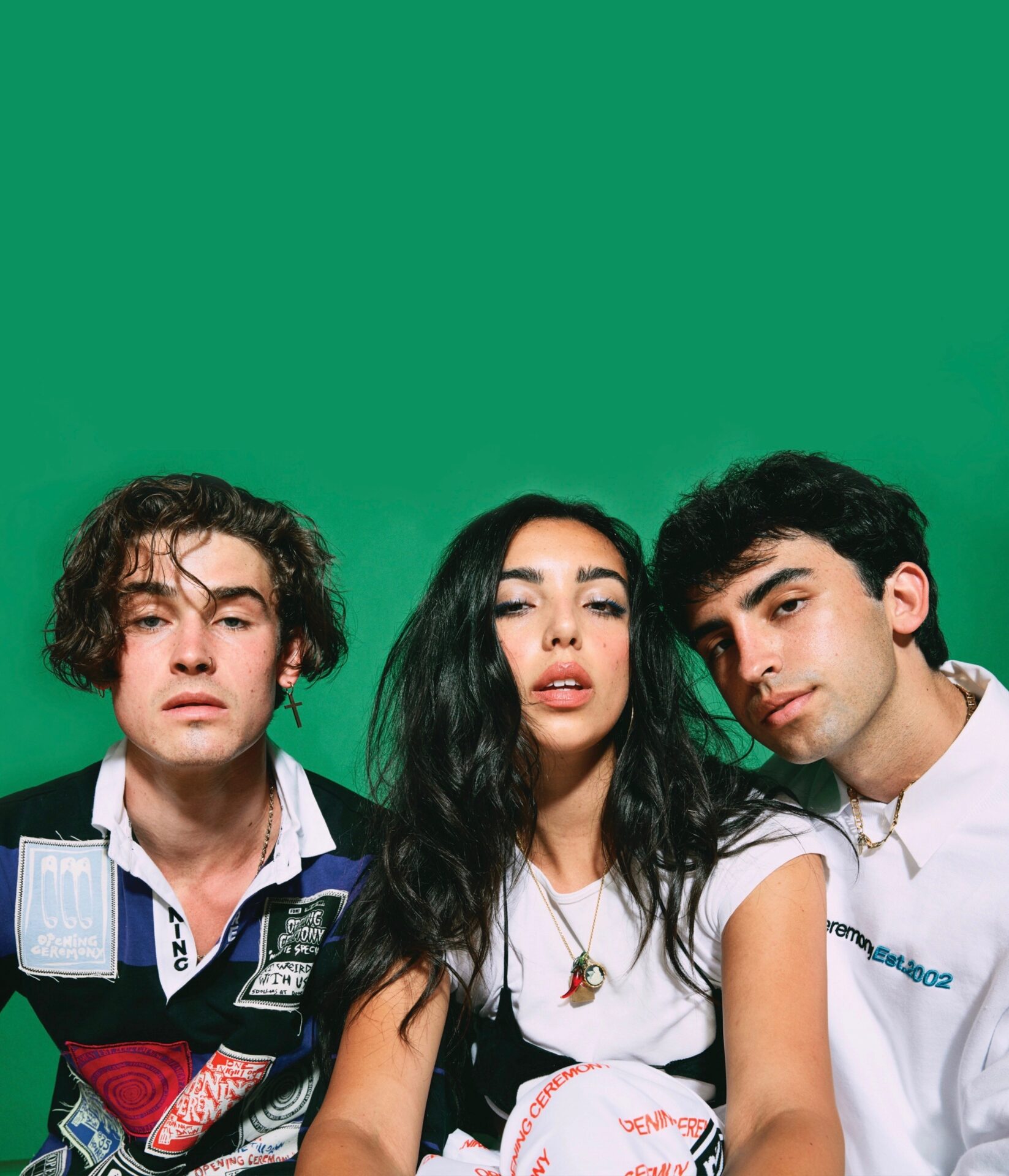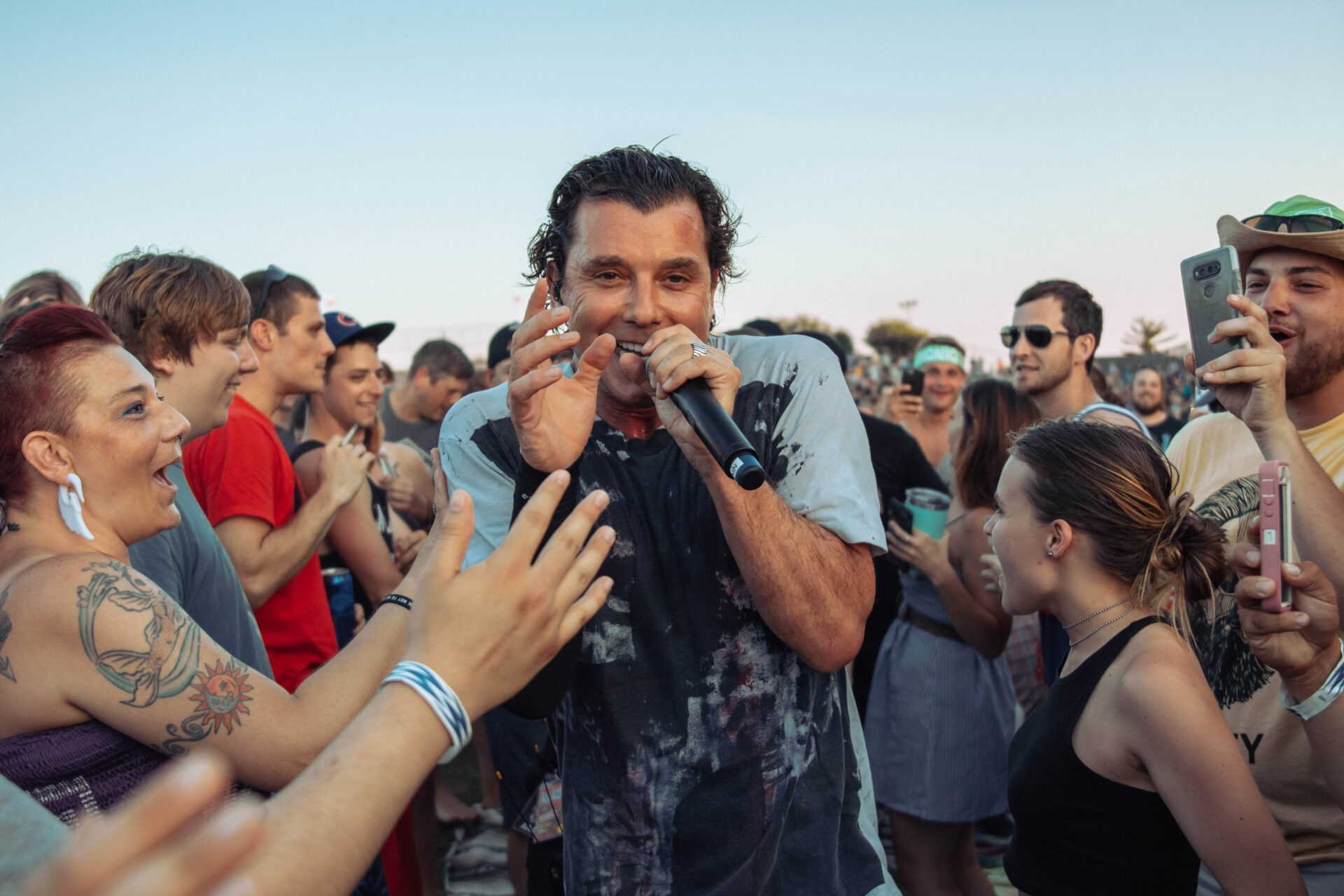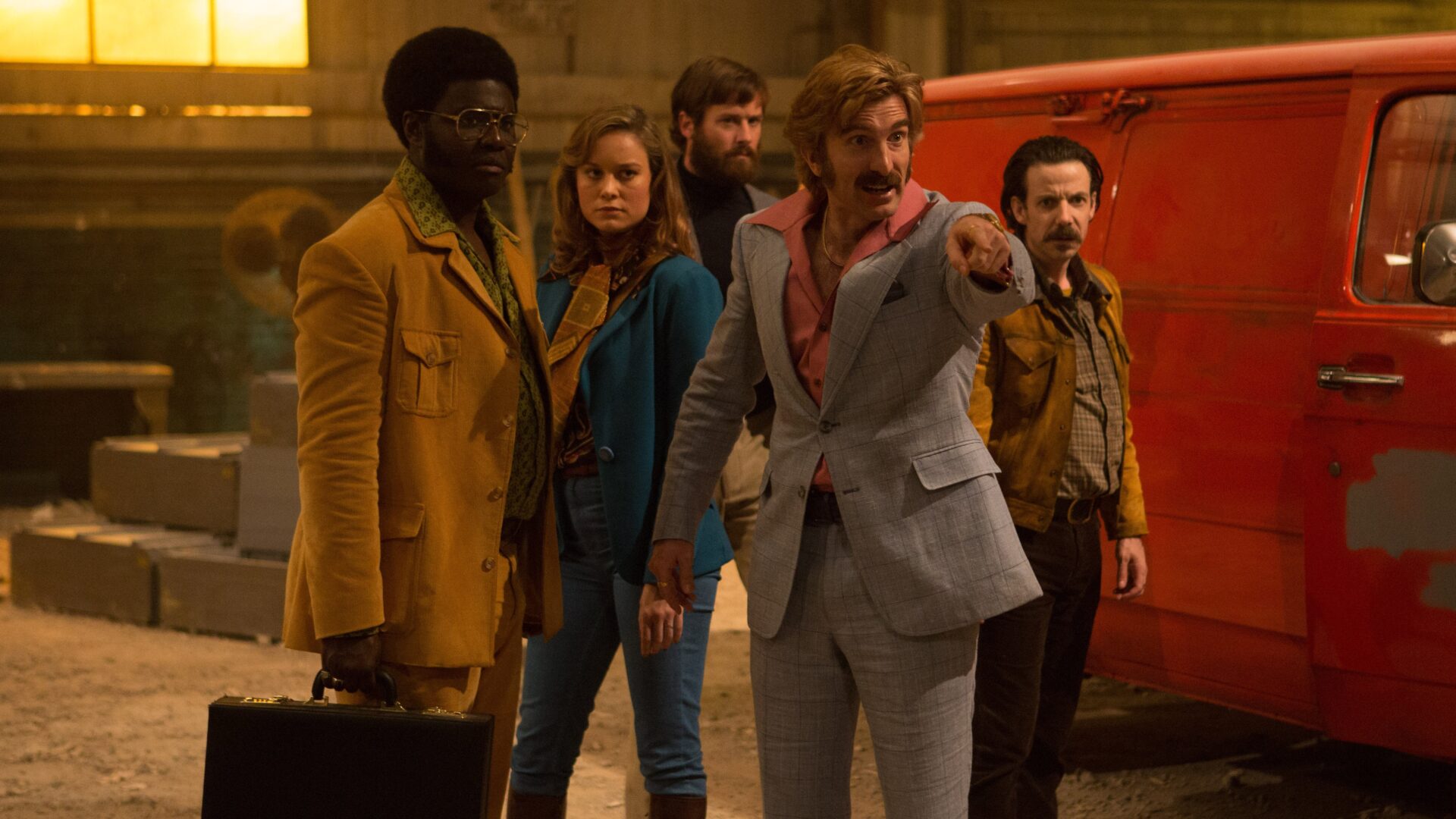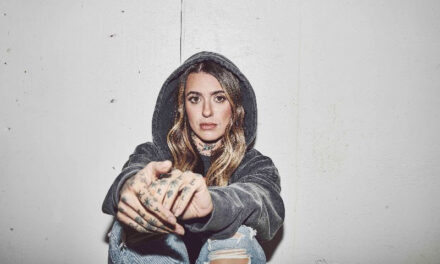After almost twenty years together, The Avett Brothers show no sign of slowing down. Just a quick peek of their tour schedule reveals shows booked through at least July 2020. Last month the band released their ninth studio album, Closer Than Together. And unlike previous albums whose lyrics reveled in life, love, and heartache, Closer Than Together reveals a band whose heads are no longer full of doubt, but full of worry. Recently I spoke with Avett Brothers bassist Bob Crawford about touring, reconnecting with his teenage self thanks to iTunes, and how his love for American history turned into more than just a hobby.
What music are you listening to right now?
Wow, that’s a good question. I have been listening to some Jim Croce, Steely Dan; nothing new and revolutionary. There’s a Christian artist, Sandra McCracken. Some Bob Dylan.
It’s hard to get away from the classics.
Well, yeah, that’s right. I go down little rabbit holes. Somebody will mention something and I’ll get in my bunk at night—and with iTunes Music it’s easy to access anything your heart desires. You listen to one song and it makes you think of another song and you just keep going, going, and going.
iTunes definitely lends itself to that. It’s hard (some) people are music purists and I miss going to the record store, but just the fact that you have all this at your fingertips now with the push of a button, it’s hard to not to be so pleased with that.
I mean, I’m 48. I’m curious as to how well stuff has held up. Like old Genesis. I loved Genesis in high school. I hadn’t listened to Genesis in years and our drummer saw Phil Collins in concert recently and said he was amazing, so I went back and listened to all of that stuff. You get to a certain age and you want to go back; I loved this when I was 15, do I love it at 50?
So you guys are currently touring right now in support of the new album, Closer than Together. How’s that going?
It’s going great. I don’t think we’re your typical touring act. We don’t set aside nine months a year and just hang on the road. We really honor our families, so we’ll go ten days to two weeks, or we’ll do like a five-day run. We kind of have a touring season. This isn’t a proper tour for our record; we’re in touring season. And touring season goes from March until about Thanksgiving, traditionally.
I noticed looking at the tour dates how it is parsed out and I appreciate that because I know you all have families and I can tell that everyone is prioritizing the right things at the right times.
You know, this is 18 years for us and every way you can do it, we’ve tried it. We did the three months on the road thing. Then you realize that anything more than two weeks the relationship at home begins to come apart. We’ve tried the weekend warrior thing. We have tried two weeks on, two weeks off. We’ve pretty much tried it about any way you can slice it so this is good, what we’ve got now, I think it’s a pretty good system. It’s been a good year, it’s been compressed, we didn’t really get going until May. It’s been a busier year than normal, but it’s been a good year.
What’s been the crowd’s reaction to the new material?
Really positive. I was curious of some (songs) and how (the audience) would react. When “Bang Bang” came out we got a little bit of pushback on social media, but it didn’t seem to last longer than a day. People talk about the politics of this record, and I think if you followed us long enough you pretty much know our politics. I think the way we see the world that’s obvious in all the records that have come before this one. I think there’s a perspective on the world and the perspective on how you treat other people, and the fluidity of life and the fragility of it all, I think that’s no different, whether the song is “Bang Bang” or “November Blue.” I think that the world view is the same.
It’s been three years since your last album True Sadness came out, and a lot has happened in those three years. I am wondering if this album is an organic response to the past 36 months or was it the band’s decision from the beginning to create songs that would tackle the tough subjects.
Organic response. Being almost 50 and the guys are 40 and up, it’s a matter of ‘what matters to you at what age’ and, ‘what do you recognize and notice,’ because the older you get, you might stop thinking about yourself as much as you used to and you might be thinking about your family and the future and what the world looks like when you’re no longer there. You know, you’re watching your parents age, you’re watching your children grow. It’s not about falling in love and getting your heart broken and this and that; the stakes seem higher and you realize the connection to the world around you and the people around you a lot more.
So the band definitely has southern roots and deep ties to an historically conservative state, was there hesitation at all to include songs like “Bang Bang” and “We Americans” on the album? Were you scared of being too pointed and divisive?
Well, no. There was a conversation about “Bang Bang” with Scott and Seth. You know what’s great about it is, it’s a conversation starter. So, I think that needs to be pointed out. I think it also needs to be pointed out that the song is written from a personal viewpoint of a real-world situation. So, I think that is important to recognize, as well. This is a song that was good for us as a group, mainly Scott and Seth, because it allowed them to engage in a difficult conversation.
I look at “Bang Bang” and “We Americans” differently. I fell in love with American History in 2004, and I began just reading. I started with the David McCullough books. I had a curiosity about American history that I still have to this day. I have a history podcast called The Road to Now; it’s something I am very serious about. I am getting my masters in history, so when I heard “We Americans” that Seth wrote, I knew Seth was reading Henry Adams so I was like, ’Oh, this is the natural result of Seth reading Henry Adams.’ Henry Adams has the greatest prose of any historian on the face of the planet. To read his historical text is to read literature it’s so beautifully written. Seth also writes beautiful prose and he’s a wordsmith, so, yeah, of course (Seth) nailed the content.
When you read history there were narratives that were, until the past 50 years, not told, but were real narratives. “We Americans” checks out. I often said to Seth, I hope you have a bibliography for this song because historians are gonna want to see it.
I put “We Americans” in the bucket with “This Land is Your Land.” And I think what’s great about “We Americans” is it goes from the idea of patriotism to paying tribute and respect. So the saying I always have is: the good, the bad, the ugly of American History. Being an American, you need to be able to recognize and somehow deal with the good, the bad, and the ugly of American history. I think what “We Americans” does, it recognizes that we need to have a certain love of our country and patriotism, but the song ends with recognizing love of God as being greater than love of country and love of one another as being greater. That’s what it means to me. I think it’s a great song. And, I think it’s a lot different than “Bang Bang” in terms of what’s controversial about it. I don’t think the subject matter of “We Americans” is controversial at all, I don’t think it should be.
I don’t think it should be, I don’t think it is, but I assume, I guess, that it would be to some…
To somebody, but everything’s offensive to somebody.
Can’t go around pleasing everyone, can you?
No. We got a song for that, too.
You mentioned your history podcast, The Road to Now, which you cohost with comedian and Ph.D holder, Dr. Ben Sawyer. I listened to the latest episode about death and it was just fantastic. Can you tell me a little bit about how you got started with that and what the reception has been?
Ben grew up with Scott and Seth and our tour manager, Dane. They all went to grade school together. Ben, in fact, played bass in a band with Seth in one of the old bands they had together. For years I would be reading these history books and Dane would be like, “You gotta meet our friend Ben.” Ben was at the University of Michigan, he has a Ph.D in Russian history, and eventually we played in Detroit, probably ten years ago, and I met Ben and we became fast friends. We talked about doing a podcast way back then. And then my daughter got sick, and I didn’t really care. I didn’t really read a history book for almost a year after that. Then May or April of 2016 everything was going well and I called him one day and I said, “Listen, if we’re going to do this, let’s do it now.”
We’re doing our first live shows. November 17th, we’re playing the Beverly Arts Center in Chicago and our guest will be Erin Welsh from the podcast “This podcast will kill you.” Our other guest will be Pete Souza, the White House photographer for Barack Obama. I’ll play a few songs, Ben will do some comedy, and we’ll have a great conversation with our guests. Then I have RTN: Theology, which is a side show off of Road To Now, and we’re on episode 15 or 16. It’s something to do, an outlet for an interest. My personal interest in history now feels important. It feels important that we understand history, and we become history curious. It’s important for Americans to understand citizenship, we need to understand the constitution and why it’s important and how it’s held the country together over these many years.
You mentioned your daughter; how is she doing?
She’s doing really well. She’s 6 and 1/2 years out of treatment and we go back every 6 months to St. Jude. We don’t spike the football. With a pediatric brain tumor it’s never over, but she’s doing great. We couldn’t imagine the way that she could be thriving the way she is right now so we are very thankful for everyone’s prayers and the support, we feel very blessed. She’s a joy.
In the documentary May it Last: A Portrait of the Avett Brothers, we learned that you didn’t really play bass before joining up with Scott and Seth, which is a funny little bit of trivia. What made you think that it was worth it to play the bass, an instrument you weren’t used to, with these two guys? What was it that stood out about them, that made you take the chance?
Well, I went to the try out, if you will, because I was trying to play with as many people as possible. I was trying to scrape together a living, because I had worked in the film and video business and I went back to school to study jazz guitar. I wanted my living to be made off of music. So, I over committed myself; I always do that, to the point where I can’t live up to all of my commitments. But, when I walked away from that night in the parking lot, the try out, I knew there was something different, and it was something I wanted to be a part of. It was acoustic and it was raw, basically. It was stripped down and raw, and that was a sound that I was always attracted to. The original songs were good and I just knew that it was something I was going to do, if we could do it. I knew immediately I would cut out doing three other things to do it.
I’ve been to several live Avett Brothers shows and to me there is just nothing else like it, as far as concert experiences go. You just walk out feeling the love and the connection. And I see the energy and the goodness you guys give the audience and the audience soaking it up and giving it back and everyone’s in it together. Every time I have seen The Avett Brothers over the years, the passion and the energy, it just gets stronger and stronger, it’s just a better show every time ; which seems unimaginable, but it’s true. So, I’m wondering, are you guys going to be The Rolling Stones of Americana? Are you going to go until your bodies just can’t do it anymore.
I hope so. I don’t know. Hopefully, barring tragedy, we’ll keep doing it. Probably take some time off. I just can’t imagine. We’ve talked about taking a year off, or ten years (laughs), so I imagine at some point we’ll take some time off, or get it down to where we feel like we have time off (laughs). But other than that, I think there will be a will to always do it. It may grow longer between doing it, you know, we may not tour like this forever, but hopefully we’ll always do it. I don’t know what else to do.
That’s the feeling I get from you guys, is that you love it. It’s evident. It’s there, we all see it, that’s why we keep coming back. So I just wonder, you know, what would make you stop?
Yeah, I don’t know.
May it last, I suppose.
Yeah, may it last. I hope so. I hope it does.
For a list of tour dates, click here.
*This interview was edited and condensed for clarity

